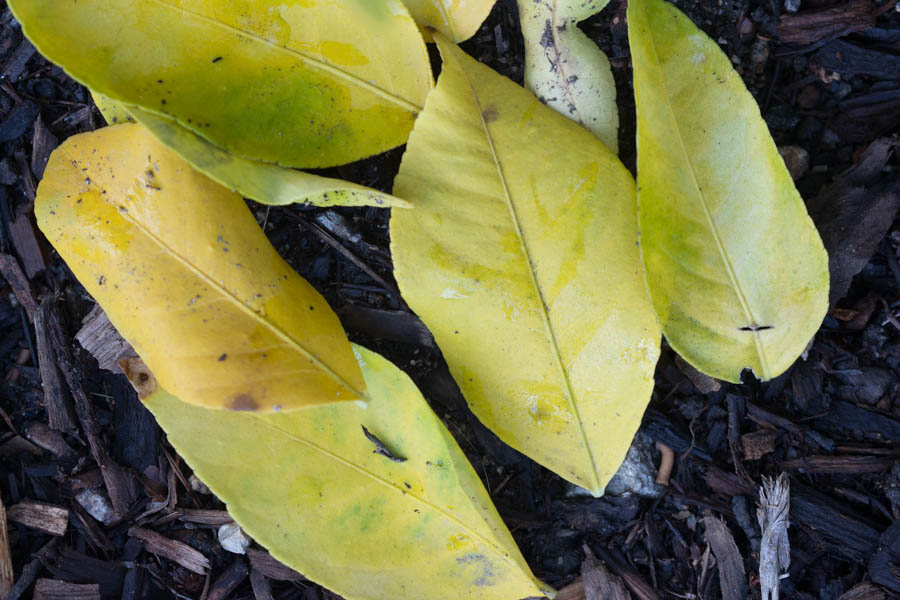Why are the Leaves on Your Lemon Tree Turning Yellow?

Why are the leaves on your lemon trees turning yellow? Two common causes are chlorosis, or iron deficiency, and nitrogen deficiency. Here is how to tell the difference.
Chlorosis. Chlorosis is an iron deficiency that appears as lightening or yellowing between veins on older leaves and/or pale green or yellow new leaves. Affected leaves will never return to normal because iron is not a mobile nutrient, meaning that it cannot be relocated within a plant. Alkaline city water and alkaline soils are common causes of chlorosis; iron becomes decreasingly available to trees when soil pH is above 6.0, and is mostly unavailable at pH of 7.0 and above. Chlorosis in citrus is often chronic due to naturally alkaline soils combined with watering over years with alkaline city water. Trees may also become chlorotic as a result of wet or waterlogged soils, anaerobic soils, root rot diseases, or damaged roots. Applying chelated iron will improve chlorosis temporarily, but is not a long-term solution or cure; further, chelated iron may rapidly become unavailable in alkaline soils.
GardenZeus recommends one or both of the following solutions. First, encourage a thriving, healthy soil ecosystem that will naturally improve soil pH. Second, increase soil pH by mulching with face-down cut halves of waste citrus, watering with a diluted vinegar solution of 1/4 to 1/2 cup of white vinegar in 2 gallons of water, or using an acidifying product such as pH Reducer.
Nitrogen Deficiency. In contrast to chlorosis, nitrogen deficiency appears as pale or yellowing older leaves accompanied by green and healthy new growth. Unlike iron, nitrogen is a mobile nutrient; that is, plants have the ability to move nitrogen from older leaves to produce new growth. A nitrogen-deficient lemon tree has healthy green leaves and pale or yellowing older leaves appearing simultaneously.
GardenZeus recommends the following for nitrogen deficiency: Apply a nitrogen soil drench in the form of diluted urea or chicken manure at the rate of one cup of chicken manure per four 4 gallons of water (half cup if fresh manure), mix thoroughly, and apply near the driplines of trees a few times per year. Fresh or composted manures may be applied as a surface-dressing under mulch. Adding too much nitrogen to soils may result in lush, high-carbohydrate leaves that attract insect infestation, and may delay or reduce fruit formation if added too early in the fruiting cycle.
GardenZeus has customized gardening information by plant and zip code. Don’t know your GardenZeus zone? Click here.
Don’t know your soil pH? The following articles may be of interest:
Mud Pies and Fizz: Easy Home Tests for Soil pH
Tips for Testing Soil at Home with a Soil pH Meter